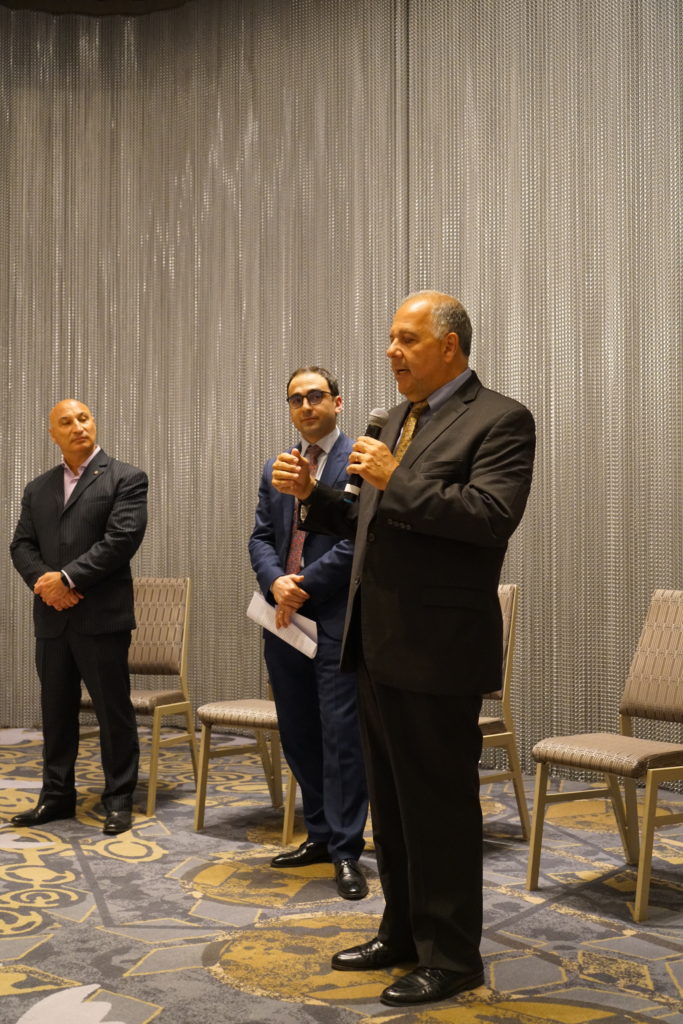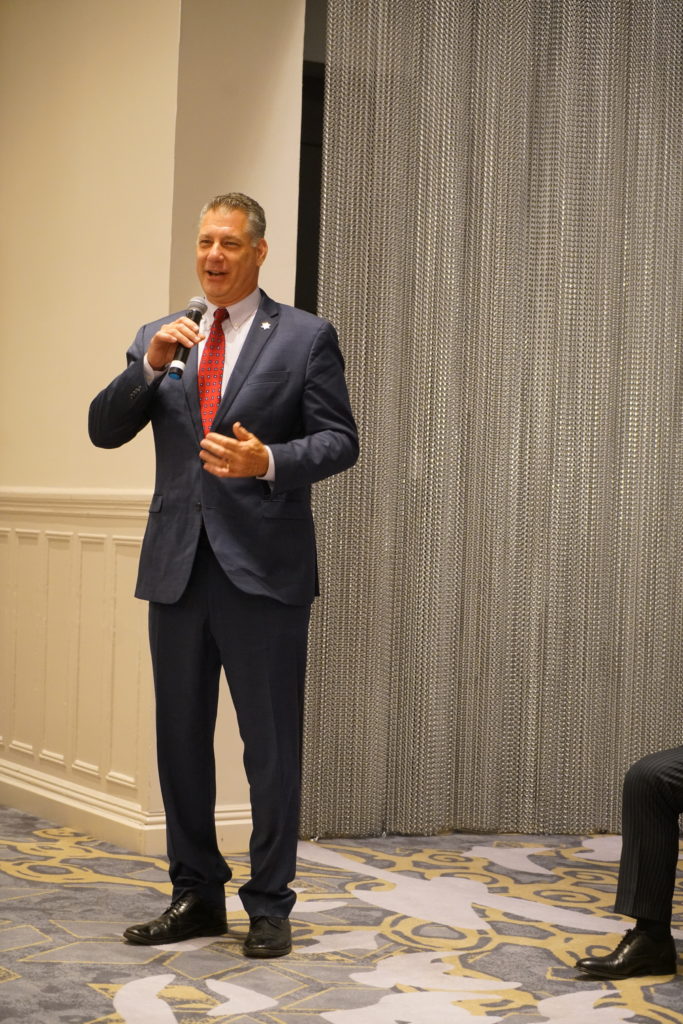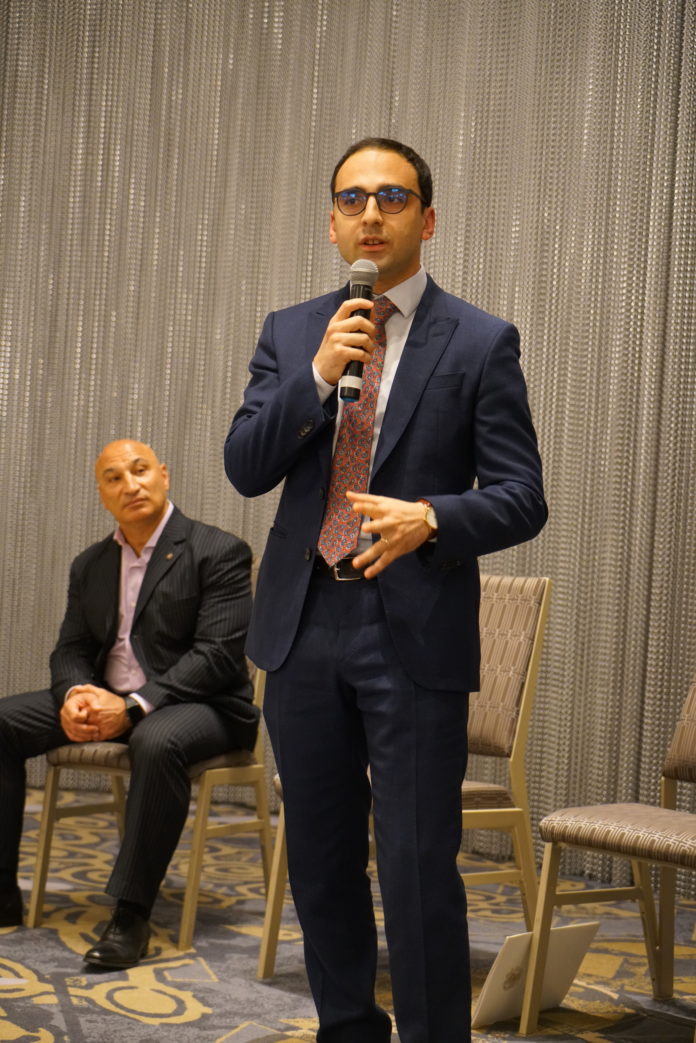CAMBRIDGE, Mass. — Deputy Prime Minister of Armenia Tigran Avinyan appeared at an evening event in Cambridge’s Sheraton Commander Hotel hosted by the Armenian Business Network (ABN) on July 18 to briefly speak and answer questions from the community.
The event was sponsored by Michael Guleserian and the Sheraton Commander Hotel, which hosted him and all visiting officials from Armenia. Avinyan and Speaker of the Armenian Parliament Ararat Mirzoyan, accompanied by Armenian Ambassador to the US Varuzhan Nersesyan, had a public event on July 19 (see accompanying article).
The visit of the officials, including various advisors, was coordinated locally by a committee composed of Anthony Barsamian, Dr. Ara Nazarian and Arman Manoukian. James Kalustian, president of the Armenian Heritage Foundation, organized a visit to Armenian Heritage Park, while Noubar Afeyan arranged for visits to the Massachusetts Institute of Technology and a meeting with MIT economist Daron Acemoglu. The officials also visited Holy Trinity Armenian Church in Cambridge and St. Stephen’s Armenian Apostolic Church in Watertown.

Barsamian made introductory remarks at the ABN event. Carolyn Atinizian welcomed Avinyan on behalf of the Armenian business community, while Sheriff Peter Koutoujian, who helped with the logistics of the visit of the Armenian delegation, briefly praised the new Armenian government and the organizers of the event.

Avinyan spoke in fluent English about the changes in the Armenian government over the last year. He said that the popular movement developed in the background of years of negative developments. When Avinyan returned from his studies in London in 2014 and met Nikol Pashinyan, he said they had a short discussion about what to do, and Avinyan told Pashinyan that even if they did nothing, the existing system in Armenia was a “big dinosaur” and history taught that dinosaurs would die eventually. So the movement of the Velvet Revolution only helped to speed its demise.
In 2018, despite the movements in the street, preventing work and school, and repeated elections, that would seem to indicate economic instability, Avinyan said the gross domestic product of Armenia grew at a rate of 5.2 percent. In the first quarter of 2019, Armenia had a 7.1 percent rate of growth, which is the highest rate of GDP growth in Europe.










